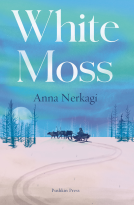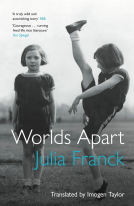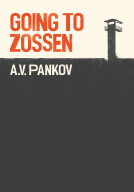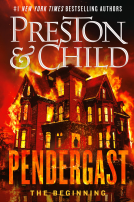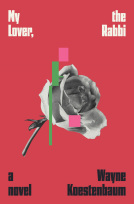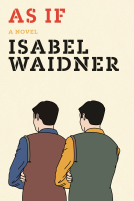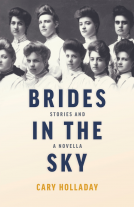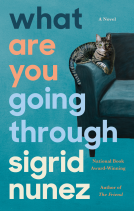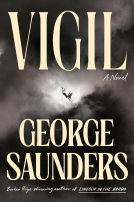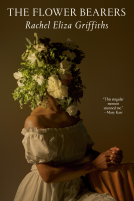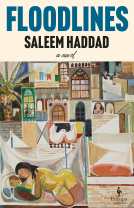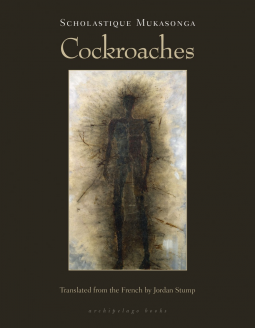
Cockroaches
by Scholastique Mukasonga
This title was previously available on NetGalley and is now archived.
Send NetGalley books directly to your Kindle or Kindle app
1
To read on a Kindle or Kindle app, please add kindle@netgalley.com as an approved email address to receive files in your Amazon account. Click here for step-by-step instructions.
2
Also find your Kindle email address within your Amazon account, and enter it here.
Pub Date Oct 25 2016 | Archive Date Jul 25 2016
Archipelago Books | Archipelago
Description
Mukasonga’s extraordinary, lyrical, and heartbreaking book … is indispensable reading for anyone who cares about the endurance of the human spirit and who hopes for a better world.
— Lynne Sharon Schwartz, Los Angeles Review of Books
Scholastique Mukasonga’s Cockroaches is a compelling chronicle of the author’s childhood in the years leading up to the 1994 Rwandan genocide.
In a spare and penetrating tone, Mukasonga brings to life the scenes of her family’s forced displacement from Rwanda to neighboring Burundi. With a view made lucid through time and pain, Mukasonga erodes the distance between her present and her past, resurrecting and paying homage to her family members who were massacred in the genocide, but also, in movingly simple language, the beauty present in quiet, daily moments with her loved ones.
As lyrical as it is tragic, Cockroaches is Mukasonga’s tribute to her family’s suffering and to the lingering grip of the dead on the living.
Advance Praise
"A kind of memoir also, a real homage to the dead that Mukasonga loved and that she stands vigil over now. This book gives them the dignified burial that they never received." --Marie-Alix Saint-Pau, Africa Vivre
"[Mukasonga] describes with humility the daily inferno that was her family's existence during the years before the massacre in the spring of '94...Sholastique Mukasonga cannot obtain reparations for the horrors she endured, but here she accomplishes a feat of memory and a story of surprising sobriety." --Urobepi, Coups de Coeurs Littéraires (Et Plus)
Praise for Our Lady of the Nile (2014, Archipelago):
A Publishers Weekly Book of the Year for 2014
Longlisted for the International Dublin Literary Award
• "In part, this is a good-humored yearbook of the adventures and scandals among the all-girl school's precocious teenage charges, where the greatest peril to morality is the arrival of a male teacher with long blond hair. But soon the school, abetted by its hypocritical administrators (including those Belgian civilizers), becomes a petri dish for Hutu militancy, and normal adolescent pranks take on horrifying consequences. The novel's abrupt transition from a naïve coming-of-age story to a violent tragedy is jarring--though surely it doesn't even begin to convey the shock of the reality." - The Wall Street Journal
• "[Mukasonga's] deliciously limpid, melodious style makes Rwandan daily life vividly accessible ... Mukasonga expertly draws together all her threads and stories in climactic sequences to create a skillfully-orchestrated vision, both loving and fearful, of her beloved homeland ripped apart by vicious racial hatred." - Shelf Awareness
• "Our Lady of the Nile swept me up with its artful bitterness [...] [Our Lady of the Nile] is buoyed by its air of foreboding consequence that imparts urgency to almost every page." - Barnes & Noble Review
Available Editions
| EDITION | Other Format |
| ISBN | 9780914671534 |
| PRICE | $16.00 (USD) |
Average rating from 16 members
Featured Reviews
 Kathleen D, Reviewer
Kathleen D, Reviewer
“This will be another sleepless night. I have so many dead to sit up with.”
The words in my review are weak and small, it’s hard to review someone’s life story, particularly one as heavy and brave as this one. But I’ll do my best.
Scholastique Mukasonga tells us her heartbreaking flight from Rwanda during ethnic cleansing. Unearthing precious memories about those she lost is the beauty in the atrocities. What greater depths of pain than losing your family and so senselessly. We hear these horrors on the news, feel pain but it passes until another event takes it’s place. In memoirs we personalize it, connect to suffering and allow it to burrow in our hearts. It certainly must have been a painful process excavating the past and yet there are beautiful reflections such as the story telling, the spirituality, the laundry washing in the lake water (where there are crocodiles), working fields after school. There is a gorgeous sense of community that so many of us don’t have.
But terror, the soldiers bursting into homes night or day, the inhumane treatment. These are things that can be told but never truly felt to the extent of those who experienced it. Forbidden to pick up bodies? Children seeing people discarded, is there anything more horrific? I didn’t know much beyond what I have seen or read about the Tutsi and the Hutu. Imagining not being able to contact your family for fear they would be harmed, not having news of them, visiting finally but having to leave. Rushed reunion, wondering when a massacre will come? And when it does, while machetes are ending the lives of loved ones- still she must SURVIVE! Adults, elderly, children… so many. “There were survivors, of course. No genocide is perfect.” That must be the harshest two lines I have read, it just guts you. How did she manage to keep her humanity in the face of such horror? When her niece Jeanne-Francoise recounts what happened to her father, I caught my breath- imagining his suffering but worse, the sick torture of the young girls mind and soul as she brought food to her imprisoned father. Man’s cruelty to his brother knows no bounds, but we have to believe kindness and love is the same too. Seeking refuge with family that are split down the middle, some want to protect, other’s don’t want the risk of having you there… it’s easy to imagine what you would do, always something brave, talk is cheap. I don’t know how you live with this and relive it all in the writing, but it’s vital such stories be told. My admiration is high. It is a glorious form of courage and though I am disturbed, I was strangely uplifted too. ” Rare are the survivors who could find their loved ones’ remains and bury them in a grave.” To imagine refugees returning to the land they fled, trying to hold tight to any remaining family, hoping to rebuild again… how to staunch a bleeding heart, how to have hope for such a future clouded over with the shadows of so many dead and lost? Scholastique Mukasonga must live “in the name of all the others.” Heavy, unflinchingly raw, inspiring.
Pub Date 04 Oct 2016
Archipelago Books
 Sue D, Reviewer
Sue D, Reviewer
This book is sad, harrowing, disturbing and so incredibly necessary. Cockroaches is a story for the dead, a documentation of their lives and worth, and an acknowledgement of the sorrow of those who survived the horrors.
 Susan D, Reviewer
Susan D, Reviewer
A must read! ...but a very difficult one.
Rwandan history is not clear in my mind except for the terrible flare of genocidal violence in the 1990s where the Tutsi people were violently exterminated from those areas of the country to which they had been consigned in earlier decades. Mukasonga fleshes in those decades through the lives of her family and neighbors, those she went to school with, those she played with and gathered water with at the lake. In the 1950s and 60s, the Tutsi people were forced to move from their homes and assigned an area of the country in which to live, a new geography to learn, new land to farm, new schools for their children. Everything new. Because their skin was the wrong shade, their noses too straight, their look just not right to fit with the Hutu norm. And Hutus were in power. In her novel Our Lady of the Nile, Muskasonga deals with some of these issues in a fictional way; here it is memory and fact.
In opening, we hear through a child's voice, in a child's memories of a move, of changes in home, friends and experiences, of scary military raids with no apparent reason except terror, of death for no purpose except the same terror. There are good memories too of family love, of brothers and sisters, of neighbors and school, of planning for a hoped for future. But behind the plans there is a tension because there are those niggling worries. All is not calm and quiet in this new home between the 1960s and 1990s. There are small indignities and larger raids. In 1973, there were larger attacks and Mukasonga's family made a decision.
In Burundi we could probably continue our studies and
find work. And above all - my parents weren't quite sure
how to say it - at least some of us had to survive, to keep
the memory alive, so the family would go on, somewhere
else. (loc 867)
Because of this escape, Mukasonga is alive and a social worker and an author today and able to provide witness to what happened in Rwanda during all these days of terror. But so many others are not.
I know that I have been woefully ignorant of the scope of what happened in Rwanda over the years and in 1994. This book was overdue for me and I believe so many others should read it. As has been said innumerable times before, if we do not learn from history, we are doomed to repeat it. This is difficult but necessary reading as Mukasonga takes us through to her return after the genocide to the destroyed village and the remnants of her childhood.
A very strong 5 rating and highly recommended.
A copy of this book was provided by the publisher through NetGalley in return for an honest review.
 Meghan Rose A, Reviewer
Meghan Rose A, Reviewer
I'm so sad. This book hurts my heart. Mukasonga, sent from Rwanda to Burundi with her brother, chosen to be the ones who survive. What a weight placed upon her. How must one deal with that? Lists of the dead, bodies never found. My daughter watches Pokemon or plays in the yard, unimaginable to her another world where by seven she's been uprooted, vilified, chased, cowering in fear by the side of the road while soldiers throw grenades in her direction.
You can't rate a book like this -- a book that gives witness, a book that gives a paper grave to Mukasonga's family, most killed in the Rwandan genocide of 1994, slaughtered after decades of persecution. You can't say Oh the writing was [adjective] or The imagery was [adjective] or anything that one generally says in a book review. How could you? On a book to document the existence of people whose existence was negated, whose existence was attempted to be erased? And what if you were the one chosen to survive, to keep the memory alive?
...whether after Auschwitz you can go on living — especially whether one who escaped by accident, one who by rights should have been killed, may go on living -- Theodor Adorno
To go on living. The weight of survival. The weight of the dead.
I'm so sorry.
Cockroaches by Scholastique Mukasonga went on sale October 4, 2016.
 Kel M, Media/Journalist
Kel M, Media/Journalist
Surviving the world
Cockroaches
By Kel Munger
kelm@newsreview.com
This article was published on 10.27.16.
The cockroaches in the title of Scholastique Mukasonga’s autobiographical novel-slash-memoir are not insects, but people; the story of a Rwandan woman’s life begins long before the Hutus took machetes to their Tutsi neighbors in 1994. Cockroaches (Archipelago Books, $16), translated from the French by Jordan Stamp, begins when her family is forcibly expelled from their village and sent to a refugee camp. Eventually, there’s exile in neighboring Burundi, then a French education; she eventually settles in France and it is from a continent away that she watches the murder of 37 members of her family, including her mother. But the people who would crush cockroaches beneath their heels in this book are not merely the Tutsi who engaged in the Rwandan genocide, but also the international community, including U.N. aid workers who stood by and did nothing.
 Mandy J, Reviewer
Mandy J, Reviewer
In this powerful and compelling account of her family’s fate in the years leading up to the Rwandan genocide of 1994 and its aftermath, the author takes the reader on a harrowing journey as we follow her family’s flight to neighbouring Burundi and their struggle to survive the horrors they were soon to face. In heart-breaking and horrifying detail she recounts what happened to so many members of her family, and bears witness both to them and the countless others who were killed and wounded. Although of a particular time and place, her story does of course have relevance to all the other massacres and genocides we have becomes so familiar with and is of universal interest and significance. Although this is no easy read, the horror is leavened by Mukasonga’s literary skill plus her fortitude and courage in both confronting the past and in forging a successful future for herself in spite of all that had happened. A memorable read indeed.
 Andrija F, Educator
Andrija F, Educator
"Cockroaches" by Scholastique Mukasonga is a poignant memoir that explores the author's experiences during the Rwandan genocide. Mukasonga, who survived the atrocities, recounts her life in Rwanda before and during the genocide, providing a deeply personal perspective on the violence and tragedy that unfolded. The book vividly describes the brutality of the genocide and the profound impact it had on her family and community. Mukasonga's narrative also reflects on the resilience of the human spirit in the face of such overwhelming horror. Through her storytelling, she offers a powerful testament to the suffering endured and the enduring strength of those who survived.
